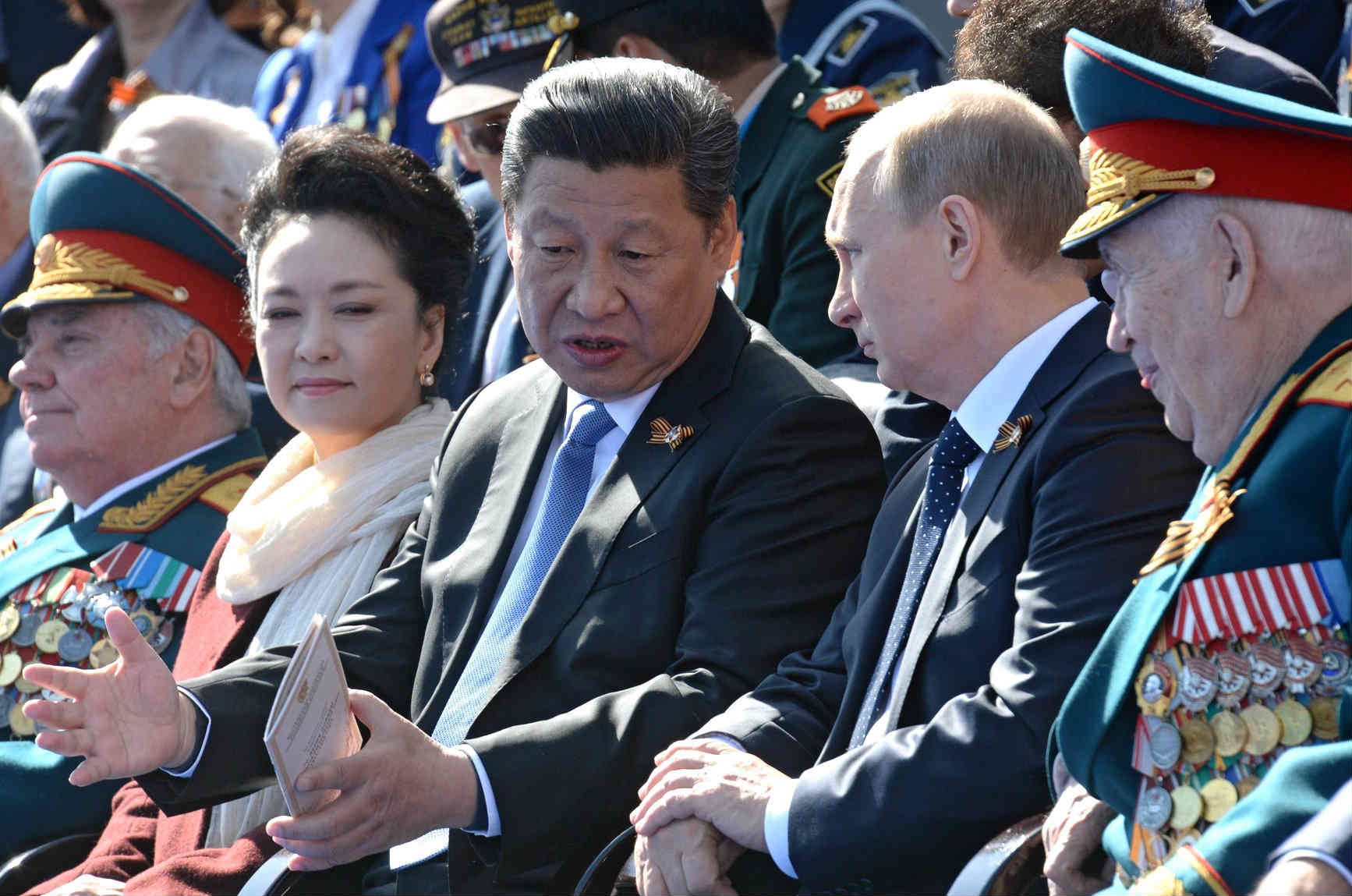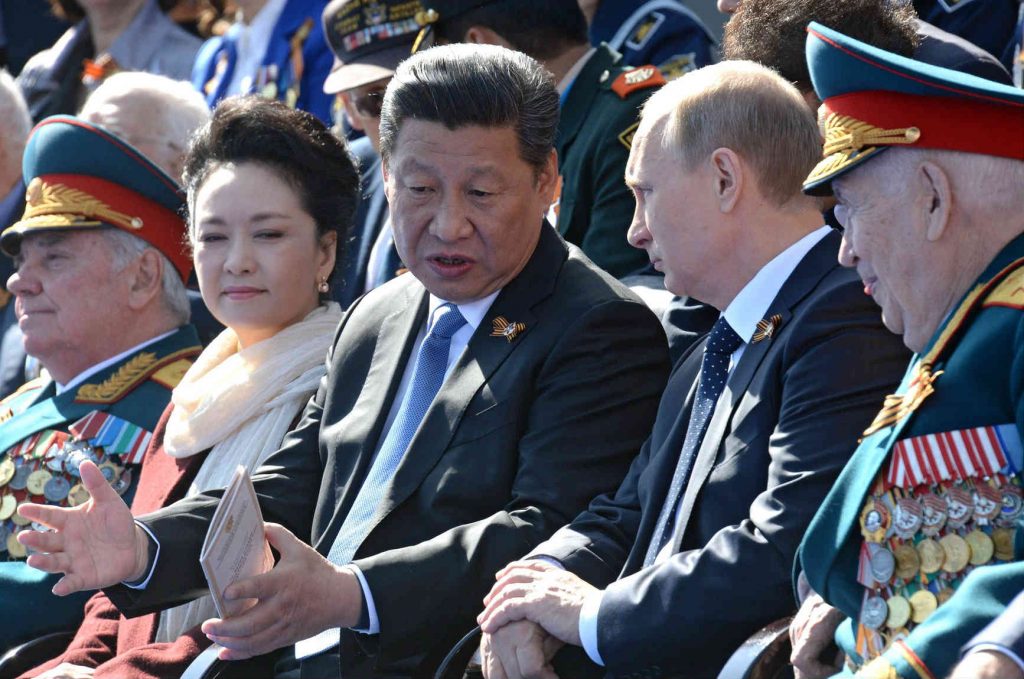 The unity and strategic viability of the transatlantic alliance and the US major non-NATO democratic allies, including Japan, South Korea, Australia, Israel, the Philippines, and others, will be severely tested in the years to come. As always, freedom is not free, and its price is constant vigilance.
The unity and strategic viability of the transatlantic alliance and the US major non-NATO democratic allies, including Japan, South Korea, Australia, Israel, the Philippines, and others, will be severely tested in the years to come. As always, freedom is not free, and its price is constant vigilance.
The United States and its allies face significant global threats, starting with Russia’s aggression in Ukraine. Also on the list: China, Iran, and the Islamic State in Iraq and al-Sham (ISIS).
These are lessons learned from four recent conferences, including Kazakhstan’s Astana Economic Forum, Montenegro’s Atlantic Council 2BS, the Institute for the Analysis of Global Security’s Global Forum on Energy Security in China, and GLOBSEC in Slovakia—as well as visits to Israel and Russia. It is clear that global change and turmoil is on the rise, while US leadership is lacking.
Russia and China are emerging as authoritarian anti-status quo powers that deeply dislike Western democracy. Until recently, their economies were growing rapidly, but lately their fortunes have soured. While not seeking a major war, they build up economic and military muscle, and prod along their peripheries, driving up Western security costs.
As in the past, Russia is becoming more authoritarian, nationalist, militarist, and expansionist. Ukraine, meanwhile, is inching closer to an economic meltdown which is likely to turn into a social crisis. The Kremlin wants to outlast Kyiv’s crisis—and pick up the pieces. The real threat to Russia, however, comes not from the US but from its soft Islamic underbelly, from Tajikistan to Chechnya.
Militant political Islam, with its violent rejection of liberal democracy and human rights—and its hatred of Christianity, Judaism, and Hinduism—is already posing open-ended transnational security threats. Both ISIS and al-Qaeda will continue to mutate. Warfare is destabilizing the Middle East and North Africa, forcing millions of refugees to Europe and beyond. ISIS is tough for 20th-century militaries to fight.
China is flexing both military and economic muscle. As it consolidates power in the South China Sea, deploying military assets on artificial islets, it’s also expanding its ambitious “One Belt, One Road” infrastructure mega-program across Eurasia and the Indian Ocean.
Beijing wants to build high-speed railways, highways, ports, airports, pipelines, and fiber-optic cables along the ancient Silk Road across Mongolia, Myanmar, Pakistan, Russia, Thailand, and former Soviet Central Asia, all the way to Iran, Turkey and Europe. The plan also includes construction of ports in Thailand, Bangladesh, Myanmar, Sri Lanka, Iran, the Persian Gulf, East Africa, and Europe.
If successful, One Belt, One Road will boost economic development in Eurasia and the Indian Ocean basin, lifting hundreds of millions of people from poverty. Beijing is playing a very long game that will challenge Russia as well. Flying from Mongolia to the Ural Mountains, one can barely spot a single paved road. This will change.
Keeping Russia and China apart may be one of Washington’s greatest geopolitical challenges for the 21st century.
We need to stay the course on Ukraine. The US has found a competent partner in Germany’s Angela Merkel, and the “Putinversteer” [Putin Understanders] in the German business community has so far been kept at bay. However, a vocal, rancid anti-Atlanticist minority in Europe—on the far right and far left—pockets Moscow’s cash and buys Moscow’s anti-Americanism, draped in the pseudo-traditionalist, anti-democratic narrative of defending Christian values, “Gayropa,” and racism.
Europe needs economic growth to pay for its defense. Not all NATO members are willing to raise military expenditures to 2 percent of their GDP as recommended by the Wales NATO summit in 2014. Meanwhile, a potential Greek exit from the eurozone may heighten the turmoil in world financial markets and slow growth— further diminishing commitments to robust military spending.
Europe is also internally conflicted. During the GLOBSEC conference, the far right protested the influx of Arab and African refugees into Slovakia. Considering the rising youth unemployment rate in many European countries, the potential for social destabilization and anti-EU sentiment is dangerously high.
However, the refugees are flooding Europe for two reasons: first, because the response by the 67-member US-led coalition to ISIS—which has captured wide swaths of territory from Tikrit to Tripoli—has so far been insufficient, and secondly, because the security measures aimed at preventing these refugees from leaving the shores of the southern Mediterranean shores have clearly failed to stem the exodus.
Cruel smugglers transport them from Libya, Syria, and Turkey to Greek and Italian shores, yet coastal patrols are powerless to stop them. The European Union and national governments must come up with a cohesive strategy on emigration, both on- and off-shore.
If the conflict in Ukraine escalates, millions more will stream into Europe, and there will be no sea to stop them. Indeed, NATO is focused on Russia as never before, deploying the Spearhead rapid reaction force and forward-stationing equipment for an armored brigade. Yet it needs to put the money, and muscle, where its mouth is: expanding military assistance to Ukraine, including defensive weapons and training.
Russia, China, and ISIS are protracted conflicts which challenge our values, our pockets, and our conflict management skills. Our allies and us need to understand who we are—and who our adversaries are. We need to adjust our global diplomacy and security policy for the 21st century, and to make it as prosperous and secure as the “American century” which started almost one hundred years ago.
Ariel Cohen is a Non-resident Senior Fellow at the Atlantic Council’s Global Energy Center and Dinu Patriciu Eurasia Center. He is also Director, Center for Energy, Natural Resources and Geopolitics at the Institute for the Analysis of Global Security and Principal of International Market Analysis Ltd.
Image: Chinese President Xi Jinping and Russian President Vladimir Putin watch the Victory Parade marking the 70th anniversary of the surrender of Nazi Germany in World War II, in Moscow's Red Square, on May 9, 2015. Keeping Russia and China apart may be one of Washington’s greatest geopolitical challenges for the 21st century. Credit: www.kremlin.ru
